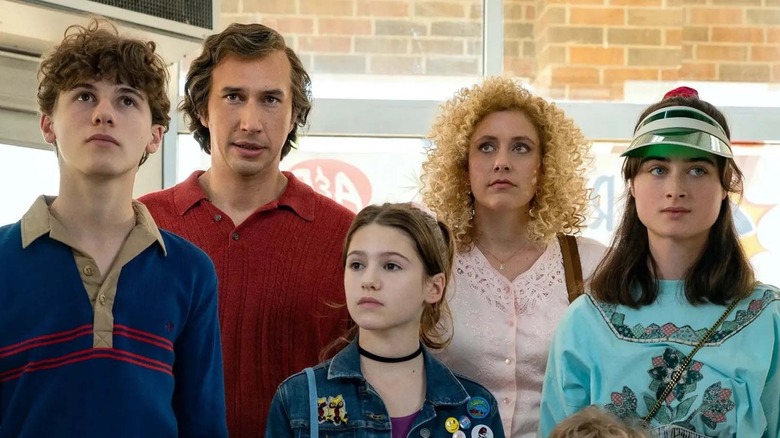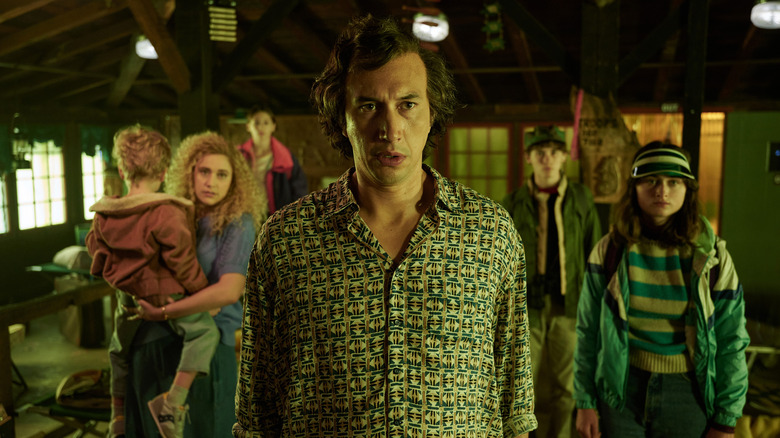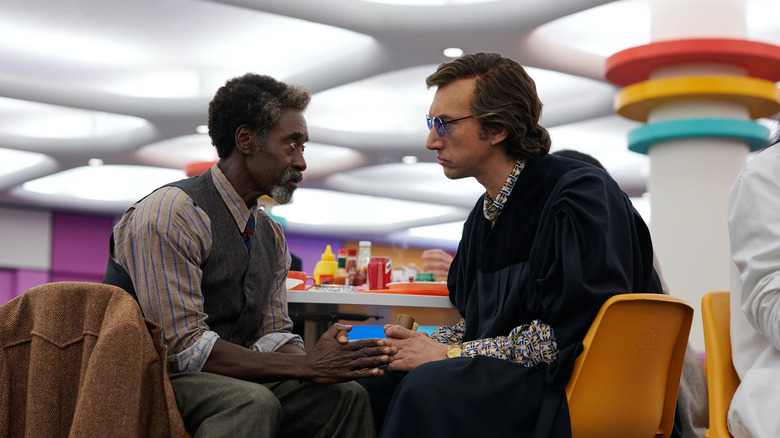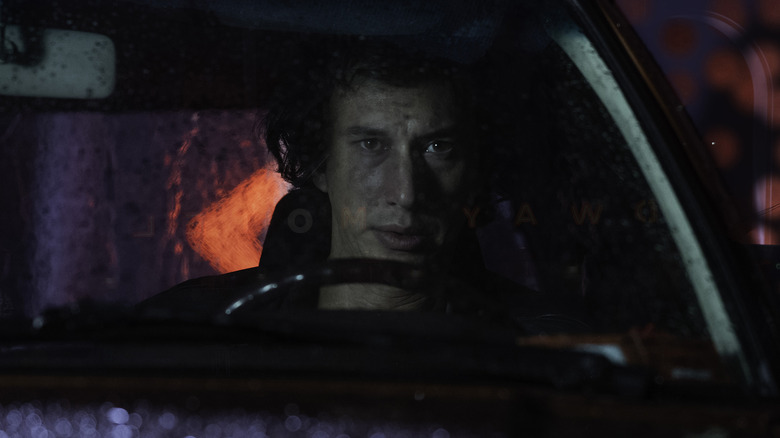White Noise Review: Noah Baumbach's Contagion Tale Wrestles With Death And Spectacle [Venice]
We're well acquainted with the prospect of death. Not only is it all around us, looming behind every good deed or shining accomplishment we make, but it's also become even more of a constant in recent times. We're thinking about it more, even though we live in service of the concept every single day. In Noah Baumbach's latest feature, "White Noise," he asserts through his characters that we are "marching toward nonexistence," and we are. It's not a lie or a fallacy. But while we're alive, we can find the excitement of living within each other, ourselves, and the way we choose to connect as people. And even bigger still, we can let ourselves be entertained, absorbed, and sometimes even inexplicably delighted by the spectacle that comes alongside being alive. With this thought in mind, "White Noise" becomes both a cautionary tale and a redemption arc for humanity all at once.
"White Noise" tells the story of Adam Driver's Jack, a professor of Hitler studies at an Ohio college who is happily married to his wife Babette (Greta Gerwig) and father to their blended family of children (two from his first marriage, one from hers, and a son together). When an "airborne toxic event" unexpectedly descends upon the quiet suburb where they live, Jack's life and worldview are thrown into complete disarray and he is forced to reckon with his fear of death and what his life truly has to offer him before he leaves it behind for good.
Death and spectacle
There are two overt and obvious themes in "White Noise," one of which has been highlighted by another major movie this summer: death, of course, and spectacle. The picture opens with a voiceover from Don Cheadle, who plays Jack's colleague Murray. He talks about car crash scenes in movies, and how they are shot to essentially induce awe in the viewer. And they do — you can tell by the way Cheadle excitedly lectures his students on the concept. He's living it. In this case, the crashes aren't real, but he knows, and they know, that the people inside those cars are supposed to be dead. It doesn't stop them from watching eagerly, waiting for a glimpse, just like it doesn't stop us from rubbernecking on the highway (which characters also do later in the film, unsurprisingly).
The combination of death and spectacle, displayed so obviously in this opening concept, is ripe throughout the film and is laced in every move these characters make, as well as the moves nature makes for or against them of its own accord. Baumbach's direction coupled with Driver and Gerwig's funny yet poignant performances help shape that combination concept into something tangible that's hard not to see directly in front of our faces: we walk through life like these characters do, terrified of the unknown but nevertheless desperate to drown in it in one way or another.
An end credits sequence to remember
It's that shocking, yet almost banal realization that made me deeply enjoy, and consider, another one of Cheadle's character's quotes, this time said directly to Jack in their local supermarket. "We simply walk toward the sliding doors," he says of dying, making it feel as painless an existence as any we've ever hoped for. He knows, and we know, that it isn't that easy, even if we desperately wish it was. Baumbach's characters, in general, but in this film especially, are always searching for the deeper meaning in what they're facing. It's why it's so easy to connect with them; We recognize and respect that struggle. We know it all too well. We, too, simply walk toward the sliding doors every day, as the characters do. That kind of universal constant is all too powerful in the presence of skilled storytelling, and it shows in this movie.
Continually connecting the two ideas, the film ends in this burst of spectacle with an incredibly vibrant end credits scene that takes us through to the movie's final title card. In it, the people of the little Ohio town of the film — including several smaller characters from the movie like Andre Benjamin, who plays another of Jack's collegiate coworkers — stylistically move through a colorful and aesthetically pleasing supermarket before breaking into dances to the tune of a new LCD Soundsystem song. In the final moments of the credits, they converge into a mass of happy dancing bodies amongst the check-out counters.
It is truly spectacular, but not the way Cheadle spoke of during the film's opening sequence. In fact, it's wholly different. Car crashes and other disasters not unlike the "airborne toxic event" are things we can't help but look at. You know the saying. Despite what we're seeing, our impulse is to watch. But with the movie's ending, that impulse comes from a place of hope, positivity, and feeling alive. Using these two concepts as bookends and mirroring the emotional odyssey our lead characters Jack and Babette navigate throughout the film is quite powerful, and it helps the movie succeed in its ultimate goal: reminding us there's more to life than dying.
A salve for the audience and their existentialism
While 136 minutes is a bit lengthy, even for this story — "White Noise" drags in parts, but again, so does life — the movie's electric, eccentric, and delightfully hilarious dynamic keeps you engrossed enough to make it to the end and finish out their story. Sam Nivola is particularly charming in a detached yet intelligent way as Jack's son Heinrich, but the most exciting thing about the family characters is the way they play off one another and make sense as a unit.
The film's almost dreamy aesthetic (you don't quite notice it at first, and then they go to the supermarket, which is pitch perfect in its period design) is a linchpin, taking us out of our own world at times so we can, almost, handle what we're being told. It's a lot on the psyche, death and dying and all that entails, so the movie's comedic elements, eccentric cast, and overall production design end up working as a salve for the audience. And with a movie that interrogates our inevitable demise this much, we need it — just as much as we need that interrogation.
/Film Rating: 7 out of 10



